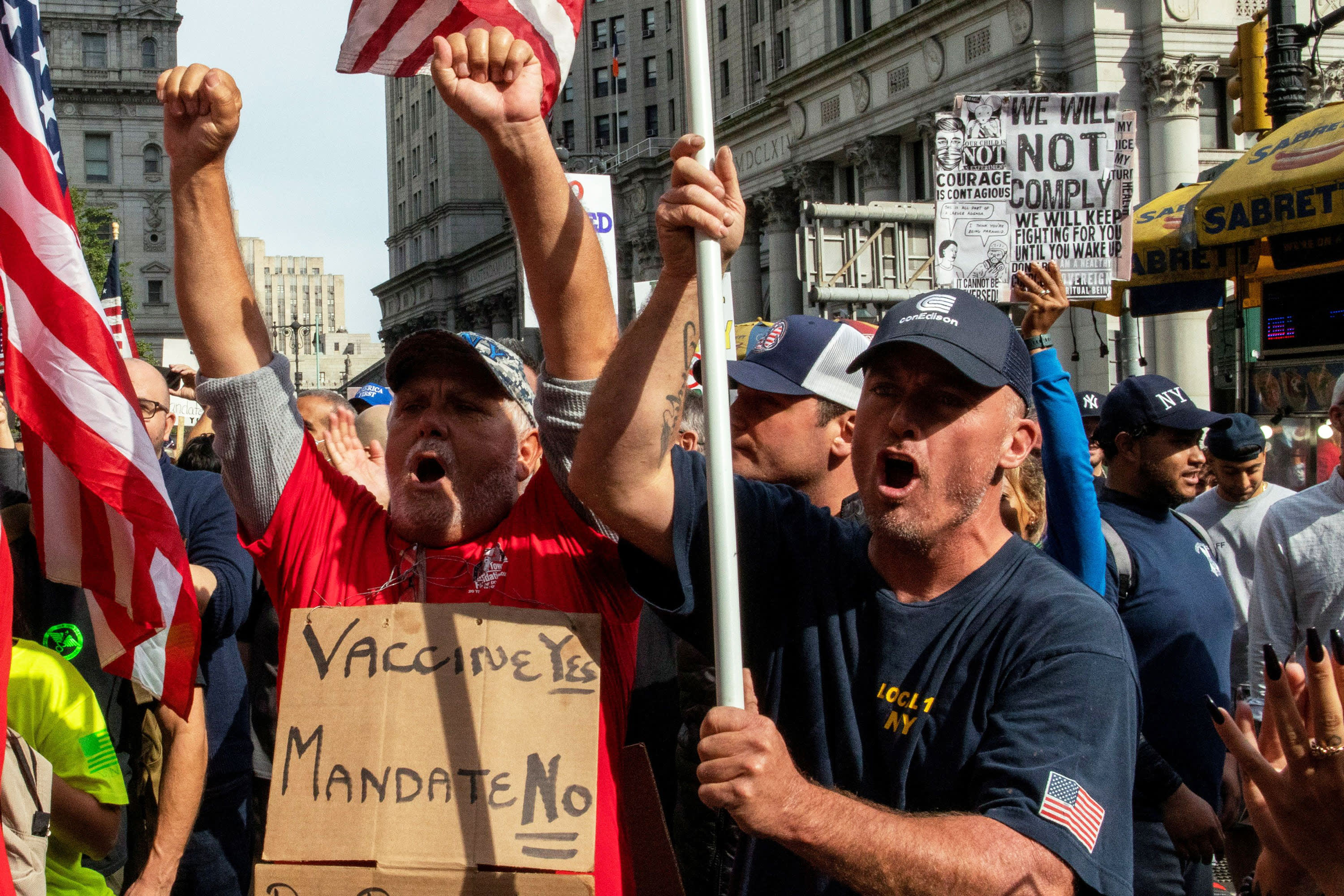A federal appeals court with a GOP-appointed majority will decide the fate of President Joe Biden’s vaccine and testing requirements for private businesses, casting further doubt on the survival of a policy the White House says is central to the fight against Covid-19.
More than two dozen lawsuits challenging the Biden policy were consolidated into one on Tuesday in the U.S. Court of Appeals for the Sixth Circuit. Former Presidents George W. Bush and Donald Trump appointed 11 of the 16 judges on the bench, while former Presidents Bill Clinton and Barack Obama appointed five.
The case against the Biden administration’s policy will be heard before a three-judge panel, but it is widely expected to ultimately be decided by the Supreme Court.
“Once a panel of judges are selected, ordinarily at random, the first question they will have to address is whether to retain or dissolve the stay ordered by the Fifth Circuit,” David Vladeck, a professor of law at Georgetown University, told CNBC.
The U.S. Court of Appeals for the Fifth Circuit delayed the vaccine and testing requirements while it reviews their legal standing. Judge Kurt D. Engelhardt, in an opinion issued Friday, said the policy was “fatally flawed” and raised serious constitutional concerns.
However, the Biden administration filed a request Tuesday for the multidistrict litigation panel to consolidate the lawsuits in a single court through random selection, resulting in the Sixth Circuit being assigned to decide whether to permanently halt the mandate.
Carl Tobias, a law professor at the University of Richmond, said the Sixth Circuit is less conservative than the Fifth. However, the randomly selected panel will likely be made up of two Republican appointees and one Democratic appointee, he said.
“The party of the appointing president is a rough measure of how any judge might rule in this complex appeal,” Tobias told CNBC.
Under the new mandate — a workplace safety rule from the Occupational Safety and Health Administration — businesses with 100 or more employees have until Jan. 4 to ensure their staff are fully vaccinated with two doses of Pfizer’s or Moderna’s vaccine or one dose of Johnson & Johnson’s. After that date, unvaccinated employees must submit a negative Covid test weekly to enter the workplace. Unvaccinated workers must start wearing masks indoors at the workplace beginning Dec. 5.
The clock is ticking. The judges could issue a ruling before the Jan. 4 deadline through an extremely expedited review, Tobias said, but the side that loses will almost certainly appeal to the Supreme Court.
Republican attorneys general in at least 26 states filed lawsuits against the vaccine and testing requirements, as have private companies and major industry groups such as the National Retail Federation, the American Trucking Associations and National Federation of Independent Business.
Labor unions, meanwhile, are suing to expand the requirements to cover smaller businesses. The United Food and Commercial Workers International Union, the AFL-CIO and the Service Employees International Union filed petitions last week.
The Biden administration warned in its response before the Fifth Circuit last week that halting the requirements “would likely cost dozens or even hundreds of lives per day” as Covid spreads. The White House has repeatedly said the virus poses a grave danger to workers, pointing to the staggering death toll and high rates of transmission in counties throughout the U.S.
The Labor and Justice departments have maintained that OSHA acted well within its authority as established by Congress.
OSHA issued the vaccine and testing requirements through a little-used emergency authority, which allows the agency to shortcut the normal rule-making process if the Labor secretary determines a new workplace safety standard is necessary to protect workers from a grave danger.
Prior to the pandemic, OSHA had not issued an emergency safety standard since 1983. The courts have halted or overturned four of the 10 emergency standards issued by the agency prior to the vaccine and testing requirements. A fifth such standard was partially vacated.
